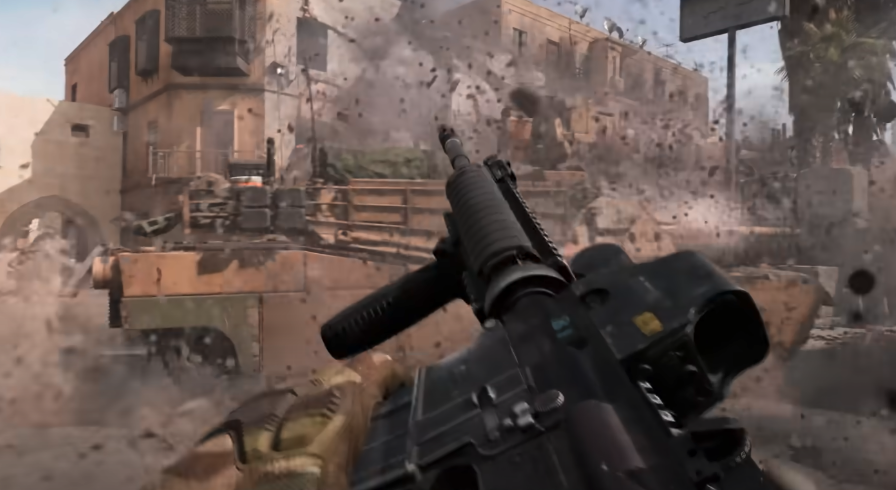For many long-time Battlefield fans, the biggest fear surrounding Battlefield 6’s development has just become a reality. In a move that’s strikingly similar to previous missteps, DICE has confirmed the return of the classless system—a design choice that, for better or worse, is undoubtedly set to redefine the series’ multiplayer experience. Previously, player concerns hovered in forums and Discord chats, but this latest announcement has sparked a notably louder backlash. While some hoped lessons from past experiments would influence current design, the hard truth is becoming impossible to ignore. Yet even as frustration swells, I can’t help but wonder—might this controversial pivot signal a surprisingly innovative new era for squad-based shooters?

Battlefield 6’s Boldest Gamble Yet: The Classless System Returns Amidst Uproar
When DICE implemented a role-free system in Battlefield 2042, many players felt strategy became significantly reduced, almost as if the tactical edge had quietly evaporated overnight. Gone were the days of panicked medic rescues and coordinated engineer ambushes; instead, we entered an era where anyone could do everything, but nobody did anything remarkably well. The result? In my experience, squad cohesion vanished, replaced by a chaotic, try-anything vibe that sounded exciting yet rarely delivered the thrill of purposeful teamwork.
Now, with DICE openly embracing this system for Battlefield 6—according to an exclusive from Eurogamer—it’s clear that freedom-first design is squarely at the heart of their philosophy moving forward. This strategy, while notably innovative in its intent to empower players, remains a hot topic of debate. Is giving everyone access to everything really a step forward for a franchise celebrated for its structured, role-driven gameplay?
Why Battlefield’s Class System Was Always Its North Star
Speaking as someone who’s spent countless nights coordinating with friends in Battlefield 3 and 4, I can’t overstate how distinctly satisfying it was to play a role. Medic, Support, Engineer—each offered a concrete purpose, and I recall how a team’s odds would shift dramatically depending on the right mix of classes. It was a bit like orchestrating a symphony, every player an essential instrument. With the classless setup, that harmony risks being replaced by a generalist noise—a dynamic that feels, to me, like forfeiting depth for fleeting versatility.
By centralizing identity around roles, the game encouraged exceptional teamwork. Knowing a squadmate had my back with ammo or a quick revive wasn’t just convenient—it made every victory feel earned through layered cooperation. In recent years, as roles began to blur, those satisfying moments of trust and specialization became notably less frequent.
You’re Not Alone in Feeling Let Down by Battlefield 6’s Controversial Changes
From my time browsing Reddit and following community chatter on Twitter, it’s strikingly clear that fans are overwhelmingly skeptical about this direction. One recent post, sitting atop the Battlefield subreddit, reflects a common sentiment: “We wanted progress—just not at the expense of identity.” Industry analysts echo this, with Jenny McClaren from GameScape Research arguing that “removing class-based systems could alienate diehard players who crave strategic nuance over broad-strokes sandbox action.”
During past cycles, DICE positioned accessibility as a key driver for these shifts, striving to open the doors for new players. Yet, in doing so, the studio risks diluting what once set the franchise apart. I remember friends describing it as “copying the trends,” likening Battlefield’s recent choices to following the fast-moving flocks rather than leading the charge—a particularly impactful criticism in a landscape where uniqueness is currency.
How Data, Trends, and Player Freedom Are Reshaping Modern Game Design
In the context of today’s gaming industry, DICE’s embrace of classless multiplayer seems almost inevitable. Companies everywhere are turning to real-time player metrics and AI-driven analytics to guide design, chasing what’s immediately popular. While this can be remarkably efficient for balancing and testing, it rarely leaves room for strategies that take root over weeks or months.
It’s similar to overseeing a team of generalists rather than a lineup of skilled specialists. On a practical level, the approach is incredibly versatile, adaptable to countless playstyles. But in the heat of battle, I worry the absence of distinct roles will mean lost opportunities for those “only-in-Battlefield” moments of heroism—a risk that deserves careful attention as development continues.
Despite Fan Frustration, There’s Always Room for Optimism
History tells us that DICE is willing, sometimes even eager, to course-correct in response to vocal feedback. Remember how, after considerable pushback, Battlefield 2042 rolled out revised specialist systems to restore some structure? Given this precedent, I’m maintaining cautious optimism. Perhaps we’ll see a hybrid solution emerge—one that marries flexibility with the best traditions of the series.
On a recent subreddit AMA, a DICE team member hinted that future updates could implement role-based incentives or clever gear restrictions. If executed thoughtfully, such systems might prove remarkably effective, restoring some of that deep, rewarding squadplay fans remember so fondly.
How Battlefield 6 Stacks Up Against Today’s Top FPS Titles
During the last few months, I’ve spent time exploring other leading shooters—think Call of Duty: Warzone, Apex Legends, Halo Infinite. Each takes a distinct approach to classes and teamplay. While some favor wide-open sandbox options, most stop short of eliminating roles entirely. When viewed side-by-side, Battlefield 6’s direction stands out as particularly daring, if not slightly risky for its established fanbase.
Here’s a quick side-by-side comparison of core features across big-name shooters:
| Feature | Battlefield 6 | Call of Duty: Warzone | Apex Legends | Battlefield 4 |
|---|---|---|---|---|
| Class System | Removed | Optional Roles | Defined Heroes | Strict Classes |
| Team Coordination | Flexible | Individualistic | Moderate | Critical |
| Weapon Unlock System | Account Based | Loadout Unlock | Hero-Specific | Class-Specific |
| Revive Mechanics | Universal | Buybacks | Character Dependent | Medic Class |
| Customization | High | Very High | Moderate | Medium |
Clearly, other franchises are balancing agency and structure in notably different ways. In the coming year, as we see how Battlefield 6’s experiment unfolds, I’ll be watching closely to see if this embrace of total freedom can set a new benchmark—or if it simply smooths away the edges that made it special in the first place.
Final Thoughts: Will Battlefield 6 Win Back Its Disenchanted Core?
For those worried about Battlefield 6’s classless multiplayer, DICE’s confirmation certainly stings. Yet it’s also the start of an exceptionally important conversation—about where classic franchises can bend and still retain their essence. Honestly, I see echoes of this tension across the gaming universe, as studios juggle nostalgia with the thrill of experimentation.
If history is any guide, Battlefield’s identity has always been adaptable, finding renewed energy through creative collaboration with its players. By inviting feedback—and, crucially, listening—DICE could still discover a system that’s both flexible and uniquely Battlefield. As a lifelong fan, I remain hopeful. After all, innovation is most thrilling when it remembers where it came from.



